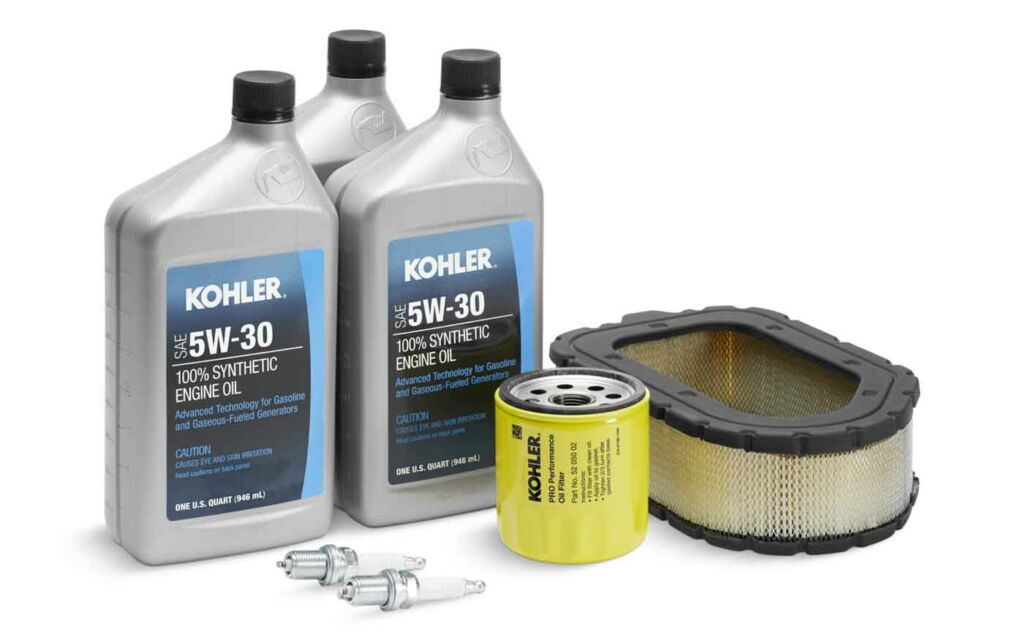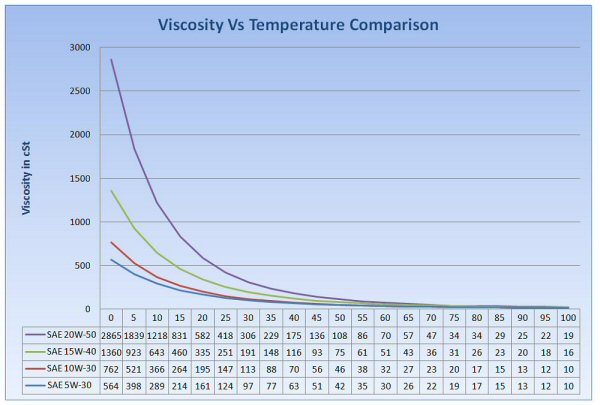As you can read in your generator manual, you should perform regular maintenance checks to ensure that your backup power source is always reliably available.
One of the most important aspects of regular generator maintenance is inspecting the oil.
It often happens, as with any engine, that after a period of use, the generator oil can become dirty, muddy and lose its properties, which can prevent your generator from operating in optimal conditions and even cause long-term damage.
Using the wrong oil can be very harmful, not only to your generator, but also to those operating around the machine.
Some common problems that can occur include the generator not starting, burning too much oil, all of which can cause an increased chance of leaks and a noticeable decrease in the life of your generator set.

A power generator is just as delicate as a car. It has an engine that we must maintain in the same way that we do with the engine of our car.
One of the key aspects for the care and durability of our generator is the lubricant or oil that we select. Often, users do not take into account, as an important aspect, the quality of the oil that they place in the tank of their generator. If you are used to adding any product, it is time to reconsider this habit.
Not all types of oil for power generators are the same. Your choice depends on a wide range of factors, including the type of generator, operating conditions, and the type of fuel to be used.
So what kind of oil should we add to a power generator? Let’s continue reading this article, in which our objective is to clarify doubts.
The Right Oil for Your Power Generator

There is a wide variety of power generators, and each one works in a different way, therefore, for each one we must choose a specific and suitable lubricant. However, knowing the type of generator you own (commercial, industrial, residential, portable) is only half the job. The other half is choosing the characteristics of oils and lubricants based on a range of factors to consider, detailed below.
VISCOSITY OF OIL
Viscosity refers to the thickness of an oil at a given temperature. Viscosity is the essential characteristic to consider when choosing a generator oil. It represents the level of resistance of the oil to flow and shearing. A wide variety of factors affect oil viscosity, such as the level of water contamination, the level of particulate contamination, the general shape, and the age of the engine.
Generator temperature is a major factor affecting oil viscosity. Before purchasing optimum viscosity index lubricants, always refer to the original equipment manufacturer’s specifications. Viscosity grades are recommended based on several criteria, including ambient temperature.
Each type of generator oil has a specific label, such as 5W-20. The first number in the code is how well the oil can be pumped at low temperatures. W refers to the starting temperature of the motor. The second number in the code explains how resistant the oil is to dilution at high temperatures or regular operating temperatures.
TEMPERATURE
As we mentioned earlier, the temperature of the generator affects the viscosity of the oil. For example, if your goal is to run your generator in extremely low, subzero temperatures, you’ll need types of oil that can keep up. In that case, you’ll need generator oil that has a lower first number, such as 5W-30. It will improve the performance of your generator in temperatures as low as -28°C.
Unsurprisingly, when operating at high temperatures, you will get a multigrade type of oil with a second highest number, such as 15W-40 oil. The lubricant flows faster through the engine than a straight SAE 40, even at higher ambient temperatures.
Most gasoline engines have 5W-20, 5W-20, and 0W-20 viscosity grades, while diesel engines have 15W-40 and 5W-40. By choosing the correct viscosity index oil, you will improve the durability and life of your power generator.
However, there are also multigrade oils that are designed to meet both winter and summer requirements. This can be one of the preferred options due to its capabilities.
Below is an example graph of how lubricating oil properties change depending on temperature. Check your manual to locate the recommended oil to use, because in some cases you may need synthetic or semi-synthetic oil.

USE OF STANDARD OILS OR SYNTHETIC OILS?
Another question you may have about generator oil and lubricants is whether to use synthetic or standard oil. Synthetic oils and lubricants benefit your power generator in multiple ways.
In first place, synthetic oils are made from petroleum molecules that first break down and then rebuild themselves. This process contributes to a more uniform molecular structure, which reduces energy consumption and increases efficiency. Unlike mineral oils, synthetic lubricants also have fewer impurities and contaminants.
Synthetic oils have a higher viscosity index, provide energy efficiency, and improve generator maintenance. Furthermore, they are more stable than mineral oils, which is immensely important under extreme working conditions.
BUY TRUSTED BRANDS
As with almost everything you buy, well-known and trusted brands are often the best on the market. Oil for your generator is no different. Trusted brands mean quality oil and more efficient production for your generator.
The oil for an engine is equivalent to the blood that flows through the circulatory system of a living being. Don’t save on oil. You’ll thank him in the long run. Always choose power generator oils made by reputable companies. Choose motor oil with high quality certification and performance level. In the United States, the American Petroleum Institute (API) evaluates lubricant quality. In Europe, the minimum standards for oils are given in the ACEA European Oil Sequences.
With a quality oil you can maximize power production, improve operational reliability and minimize maintenance costs. In the end, selecting a quality lubricant will be a desirable savings.
MANUFACTURER'S RECOMMENDATIONS
If you own a power generator, chances are you are already fully aware of its requirements, setup, and operation. That being said, you should have received the user book which covers all the necessary information, which is guaranteed to give you a better understanding of the oil that is required.
Depending on the manufacturing date of your generator and the included operation and maintenance guide, it is more than likely that there will be various recommendations on the type of oil to use.
If you are unsure about the details of your generator, our specialists at Brags & Hayes Generators will be happy to advise you.
Each manufacturer recommends a specific oil for the power generator they manufacture, which ensures protecting your equipment from wear and tear as well as minimizing downtime and reducing the need to take it in for repair.
This means that the reputation of the product will always be at stake, and this is why manufacturers take special care in selecting the motor lubricant they recommend.
For these reasons, you should familiarize yourself with the type of power generator you currently purchase or own. We recommend reading the manual that came with your equipment, and choosing the oil with the correct viscosity index recommended by your generator manufacturer.
Additives for your generator oil
In addition to looking at the viscosity grade of the oil, some manufacturers recommend the use of additives to improve the overall effectiveness of the oil in your power generator.
Generally, three main additives are used in generator oil: cleanability, wear protection and performance enhancer. These additives are designed to clean, protect or improve the quality of the oil inside the generator, so that it lasts longer, better performance, and can ensure that the machinery has a longer and more useful life.
When you change the oil in your generator, also change the filter

Finally, if you are going to change the oil in your generator, remember to also change the oil filter. The oil filter keeps dirt and debris out of the fluid. Also remember to lightly lubricate the filter gasket with fresh oil, for optimum performance.
Oil is a vital element in your generator, so it is important to keep it full and cool, especially during periods of continuous heavy use.
Remember that these are general maintenance tips. For specific information about the oil in your power generator, always refer to the manufacturer’s manual.
At Brags & Hayes we are here to advise you on everything related to backup power generation, what equipment to buy, how to maintain it preventively and how to use it correctly. If you have any questions, you can contact the telephone number +1.954.657.7777, by Whatsapp (in the green icon on the right) and by email to info@bnhgenerators.com.


